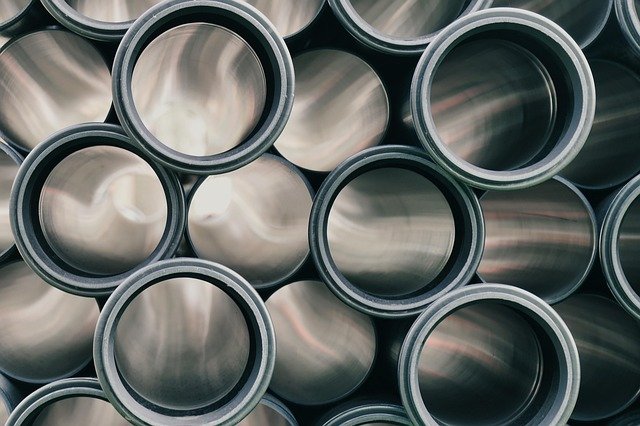Understanding Scrap Prices: A Comprehensive Guide
Discover how premium scrap value rates are determined and what factors influence the pricing of recyclable materials. Understanding these rates can help you make informed decisions when selling scrap, ensuring a practical approach without unnecessary risks or assumptions.

The scrap metal industry plays a vital role in the circular economy, transforming discarded materials into valuable resources. Prices for scrap metals vary significantly depending on the type of metal, current market conditions, and the quality of the material being sold. Copper, aluminum, steel, brass, and stainless steel each command different rates, with precious metals typically fetching higher prices per pound. Economic factors such as construction demand, manufacturing output, and international trade policies all influence what recyclers are willing to pay for your materials.
What Factors Influence Scrap Metal Pricing?
Several key elements determine the value of scrap metal at any given time. Market demand remains the primary driver, as industries requiring raw materials adjust their purchasing based on production needs. When construction booms or automotive manufacturing increases, demand for steel and aluminum rises, pushing prices upward. Conversely, economic slowdowns typically depress scrap values. Metal purity and condition also matter significantly. Clean, sorted metals without contaminants command premium rates, while mixed or contaminated materials receive lower valuations. Transportation costs, processing requirements, and regional supply dynamics further affect local pricing structures.
How Premium Scrap Metal Buyers Determine Value
Premium Scrap Metal Buyers distinguish themselves through transparent pricing practices and fair evaluation methods. These buyers typically employ certified scales, provide detailed breakdowns of how they calculate prices, and stay current with London Metal Exchange rates and other global pricing benchmarks. Reputable buyers assess metal grade, weight, and contamination levels before making offers. They often specialize in specific metal types, allowing them to offer competitive rates for materials within their expertise. Establishing relationships with trusted buyers can lead to better pricing over time, as they recognize reliable suppliers who consistently deliver quality materials.
The Role of Scrap Metal Valuation Services
Scrap Metal Valuation Services provide professional assessments for individuals and businesses uncertain about their materials’ worth. These services employ experts who identify metal types, estimate quantities, and provide market-based valuations before you commit to selling. For large-scale operations or complex industrial scrap, professional valuation prevents undervaluing materials and ensures accurate inventory accounting. Some valuation services charge flat fees, while others take percentages of final sale prices. Mobile valuation options exist for large quantities that cannot be easily transported. These services prove particularly valuable when dealing with mixed metals, electronic waste containing precious metals, or specialized alloys requiring expert identification.
Understanding Premium Scrap Recycling Rates
Premium Scrap Recycling Rates represent the higher end of the pricing spectrum, typically offered for clean, sorted, and high-grade materials. Copper wire stripped of insulation, clean aluminum extrusions, and stainless steel without attachments qualify for premium rates. The difference between standard and premium rates can be substantial—sometimes 20 to 40 percent higher for properly prepared materials. Investing time in sorting and cleaning scrap before delivery often pays dividends. However, preparation requirements vary by buyer and metal type. Some facilities accept mixed loads but pay lower composite rates, while others require strict sorting to offer premium pricing.
Current Scrap Metal Price Ranges and Market Trends
Scrap metal prices fluctuate regularly, making it essential to check current rates before selling. As of recent market conditions, copper typically ranges from $2.50 to $4.00 per pound for clean material, while aluminum averages $0.40 to $0.80 per pound depending on grade. Steel prices hover around $0.05 to $0.15 per pound, with variations based on thickness and contamination. Brass commands $1.50 to $2.50 per pound, and stainless steel fetches $0.40 to $0.90 per pound. These figures represent general ranges and vary significantly by location, buyer, and current market conditions.
| Metal Type | Price Range (per pound) | Grade Requirements |
|---|---|---|
| Copper | $2.50 - $4.00 | Clean, uninsulated wire preferred |
| Aluminum | $0.40 - $0.80 | Sorted by alloy type |
| Steel | $0.05 - $0.15 | Clean, free of attachments |
| Brass | $1.50 - $2.50 | Yellow brass commands higher rates |
| Stainless Steel | $0.40 - $0.90 | 304 and 316 grades valued highest |
Prices, rates, or cost estimates mentioned in this article are based on the latest available information but may change over time. Independent research is advised before making financial decisions.
Maximizing Returns on Your Scrap Metal
To achieve the best possible prices for scrap materials, preparation and timing matter. Separate different metal types before delivery, as mixed loads receive lower composite pricing. Remove non-metal attachments like plastic, rubber, or wood, which reduce value and may incur processing fees. Consider accumulating larger quantities before selling, as some buyers offer better rates for bulk deliveries. Monitor market trends and sell during price peaks when possible, though storage costs and space limitations may make this impractical for some sellers. Building relationships with multiple buyers allows you to compare offers and choose the most favorable terms for each load.
Choosing the Right Scrap Metal Buyer
Selecting a reputable buyer protects you from unfair pricing and ensures smooth transactions. Look for licensed facilities with certified scales and transparent weighing processes. Check online reviews and business ratings to gauge customer satisfaction and fair dealing practices. Verify that buyers provide itemized receipts showing metal types, weights, and per-pound rates. Ask about payment methods and timing—reputable buyers typically offer immediate payment via check or electronic transfer. Avoid buyers who refuse to show scale readings, provide vague pricing explanations, or pressure quick decisions without allowing price comparisons. Legitimate operations welcome informed customers and answer questions openly.
Understanding scrap metal pricing empowers you to make informed recycling decisions and maximize the value of discarded materials. By recognizing the factors that influence pricing, preparing materials properly, and working with reputable buyers, you can turn waste into worthwhile returns while contributing to environmental sustainability through metal recycling.




